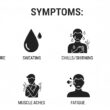In an era where side gigs, 24/7 availability, and personal branding are prized above all else, a quieter revolution is underway. As Gen Z enters the workforce en masse, they’re challenging the very heart of hustle culture—and flipping it on its head. From tech-savvy burnout prevention strategies to modern wellness tools like Budpop, this generation is rewriting the rules on how to chase success without sacrificing sanity.
Instead of glorifying exhaustion, Gen Z is championing mental bandwidth, emotional resilience, and deep focus, not as luxuries, but as essentials. This means calibrating work-life boundaries, incorporating micro-recoveries throughout the day, and rejecting the idea that relentless hustle is the ultimate goal.
The Rise and Risk of the Hustle Economy
“Hustle culture” emerged as a byproduct of economic uncertainty—urging people to diversify income streams, upskill continuously, and treat themselves like start-ups. Entrepreneurship was glamorized, and self-help podcasts became motivational pep rallies.
But this nonstop cycle came at a cost. According to a recent Centers for Disease Control and Prevention report, mental health conditions like anxiety and depression have surged among working-age adults, with long work hours, stress, and lack of recovery being significant contributors. Employment patterns that offer flexibility often see better mental health outcomes—highlighting the cost of the hustle mentality. Burnout became more than just a buzzword—it turned into a chronic, systemic issue, fueled by constant digital demands and the pressure to optimize every minute.
Gen Z: Not Done, Just Different
Gen Z isn’t rejecting ambition—they’re refining it.
1. Boundary Redefined
This generation is the first to truly untether productivity from time spent in the office. Instead of email chains beyond midnight, they prioritize flexibility and autonomy, tying success to output—not hours.
2. Mindful Tech Use
Rather than banning devices, Gen Z practices digital minimalism. Tools like app blockers, scheduled deep-focus sessions, and strategic use of wellness aids help them retain clarity and creativity even during demanding periods.
3. Wellness as Infrastructure
Wellness isn’t an afterthought—it’s woven into daily routine. Whether it’s optimized sleep, white-noise during travel, scheduled mental “pause spaces,” or supplements that support recovery, this generation treats restoration as non-negotiable.
4. Cultivating Psychological Safety
Speaking openly about stress and mental health isn’t taboo—it’s expected. Support circles, therapy, and structured time-off policies make mental safety a shared responsibility. These shifts reveal that hustle isn’t dead—it’s evolving into something smarter, more sustainable, and science-backed.
Why This Evolution Matters in Business
Why should organizational leaders pay attention to this shift?
1. Performance Over Presence
Studies show that outcomes-driven work—not hours-piled-on—leads to more motivation, innovation, and retention. Gen Z’s preference for flexibility actually unlocks and sustains peak performance.
2. ROI of Resilience
Burnout carries massive hidden costs: lost productivity, turnover, and errors. Businesses that embed restorative cycles and measurable recovery practices see substantial returns in loyalty, clarity, and long-term stability.
3. Talent Magnetism
Generation Z is entering leadership roles with values molded by the hustle-rewire mentality. Culture now matters more than compensation. To attract this cohort, companies must show they prioritize well-being as a default—not a perk.
Tools of the Rewire: Tech, Tactics, and Tranquility

Here’s how Gen Z implements this redefined hustle in everyday life, and how companies can support it:
Pomodoro + Self-Care
Pairing focused work blocks with restorative moments—breathing, stretching, even stepping outside—makes burnout prevention systematic.
Ritualized Recovery
Mini rituals—like a walk after lunch or 5-minute breathing breaks between tasks—prime the mind for return to focus. Many find discreet wellness aids, including Budpop products, helpful in these transitions.
Deep Work Blocks
Gen Z calendars protect “deep work” time, minimizing context switches and distractions. This intentional partitioning elevates output quality.
Mindful Metrics
Mood trackers, hydration apps, and productivity logs help detect stress patterns. When low energy follows late-night emails, awareness triggers course correction.
Support Circles
Peer mentorship, mental health Slack channels, and Teams focused on recovery reopen discussions that always determined productivity overrates well-being.
Backing Data: Health First, Productivity Follows
What initially felt anecdotal now has scientific backing:
- A National Institutes of Health study found micro-breaks reduced mental fatigue and increased task accuracy over the long term—which is foundational to sustainable performance.
- Companies that embrace restorative work models report up to 20% increases in employee retention and 15% decreases in burnout-related errors.
Now, more than ever, the connection between well-being and business outcomes is undeniable. And Gen Z is leading the charge.
What Companies Can Do Today
If you’re aiming to future-proof your organization:
- Offer Micro-Recovery Policies
Encourage small, frequent breaks between meetings. Equip teams with signals or designated spaces to reset. - Include Wellness in Benefits
These can go beyond gym membership: reimbursement for stress-management aids, mindfulness apps, or time-off credits for mental health. - Define Work by Quality, Not Clock Time
Shift evaluation toward deliverables and impact. Build trustful asynchronous culture. - Make Flex Culture Intentional
Flex timing should come with boundaries, sacred focus hours, and no email off-hours. - Track Psychological Safety Metrics
Use pulse surveys to capture stress and fatigue. Treat the data as essential as revenue numbers.
Navigating the Pitfalls
Resilience-focused work culture has its challenges:
- Recover Overuse: Flex schedules can morph into always-on pressure if not structured.
- Wellness Showmanship: Turning self-care into status competition undermines its purpose.
- One-Size Suppression: Tailor wellness resources to individual needs—don’t expect all to benefit from the same tools.
Organizations anchored in experience (not just intention) will outlast.
When Hustle Meets Humility
Hustle culture once equated relentless drive with achievement. Gen Z is shifting that paradigm: ambition plus awareness is the highest form of success. They’re not rejecting effort, they’re redeploying it so that it’s sustainable, conscious, and anchored in humanity. The modern hustle isn’t about never stopping, it’s about knowing when to pause. It’s high-intent work, yes—but balanced by deep rest. It’s not measured in hours, it’s felt in capacity. For businesses and professionals alike, this Gen Z-fueled burnout rewire isn’t a trend—it’s a competitive edge. Those who adapt will build teams that don’t just survive—they thrive.




